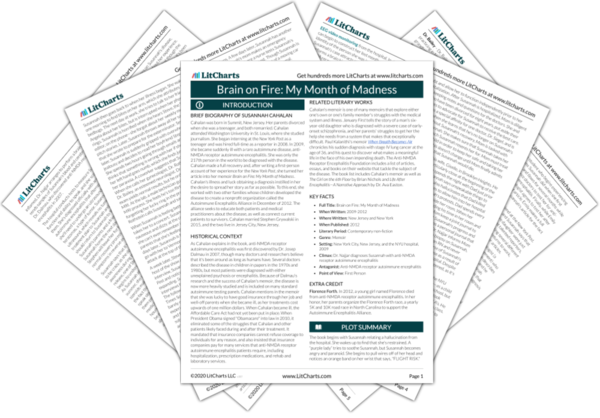Again, when Susannah expresses fear that others are conspiring against her, it demonstrates a fear that other people are controlling her story, image, and identity. It's worth noting that at this point, all three of those things are entirely outside Susannah's control, even if she is capable of writing in the notebook from Dad.
